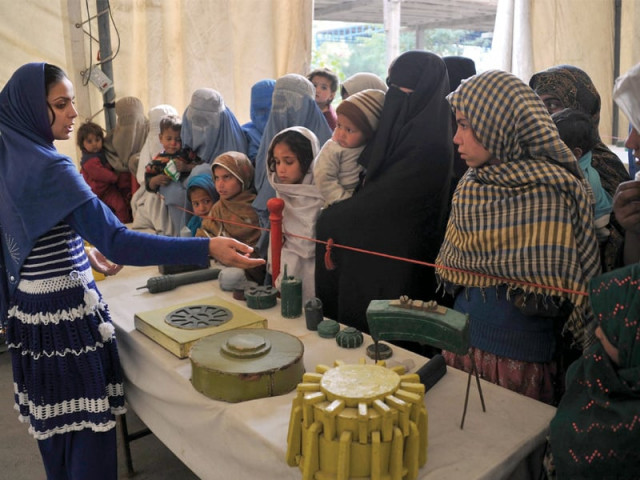Repatriation: Afghan refugees given six more months in Pakistan
Decision made by PM Ashraf at high-level meeting; refugees reluctant to leave.

Pakistan on Wednesday gave 1.6 million Afghan refugees the right to stay another six months in the country, extending a deadline on their residency papers that had been due to expire at the end of December.
The decision was taken by Prime Minister Raja Pervaiz Ashraf at a meeting held in the Prime Minister’s Secretariat, according to a statement from his office. His spokesman confirmed that Afghan refugees would now be entitled to stay in Pakistan until the end of June 2013.
The premier also decided to constitute a committee, headed by Minister for States and Frontier Regions Engr Shaukatullah, to monitor the repatriation of Afghan refugees.
A spokeswoman for the UN refugee agency said Pakistan had promised not to expel any registered refugee. “We got assurances from Pakistan that they would respect the voluntary nature of returns and would not expel any registered refugee,” Duniya Aslam Khan told AFP.
More than five million Afghans fled their homeland for Pakistan in the early 1980s, soon after Soviet troops invaded Afghanistan.
Since the 2001 US-led invasion brought down the Taliban, 3.8 million have returned, leaving 1.6 million behind, most born and brought up in Pakistan.

In late October, UNHCR boosted incentives for Afghans to return and around 10,000 Afghans went home from October 23 to November 30 – more than double the number who were repatriated in the same period last year.
But despite pressure from Islamabad and the extra incentives, the vast majority of the Afghans still in Pakistan are reluctant to return to a country gripped by war and poverty.
“Some people think that the security situation has improved in Afghanistan, but they’re wrong,” said Malak Nader, who represents 500 families in the Jalala refugee camp on the outskirts of Mardan town.
“If we support the government, the Taliban will come the next day and slit our throats and if we support the Taliban, the coalition forces will come and bomb us,” the truck driver told AFP.
Azat Khan, who spent 30 years in exile in Pakistan but spoke to AFP as he got ready to drive back to Afghanistan. “I am happy to leave, it’s costing me less,” said Azat referring to the incentives from the United Nations.
But there is a catch: Afghans who leave give up their refugee status. If they come back, it will be without the protection of the law like a million other illegal Afghans, regularly accused by the Pakistanis of being criminals.
According to the UN, nearly 97% of the refugees have no intention of leaving Pakistan, largely due to the insecurity.
Back in Jalala, which looks more like a village than a refugee camp, with sugarcane fields and mud-brick homes, Nader said he did not want to risk losing everything in Pakistan for an uncertain future in Afghanistan. “As long as the Pakistani government doesn’t expel us, we’ll stay here,” he said, as a dozen men from the camp nodded in agreement.
Published in The Express Tribune, December 13th, 2012.



















COMMENTS
Comments are moderated and generally will be posted if they are on-topic and not abusive.
For more information, please see our Comments FAQ